Tour d’horizon du processeur SPARC M7
Oracle a récemment dévoilé à l'OpenWorld 2015 son nouveau processeur SPARC M7. Il s'agit du 6ème que l'entreprise a sorti depuis le rachat de Sun Microsystem en 2010. Avec le SPARC M7, Oracle a repoussé les limite des capacités des systèmes SPARC.


Mettre à jour des Ldoms sur Oracle Solaris 11.3 en 20 minutes !
Oracle Solaris 11 dispose d'un puissant système de mise à jour basé sur IPS et sur ZFS. Quand on met à jour le système d'exploitation un nouvel environnement est créé contenant le système mis à jour. Ce fonctionnement a pour avantage de ne pas avoir d'impact sur l'environnement actuellement actif puisqu'on ne le modifie pas directement.
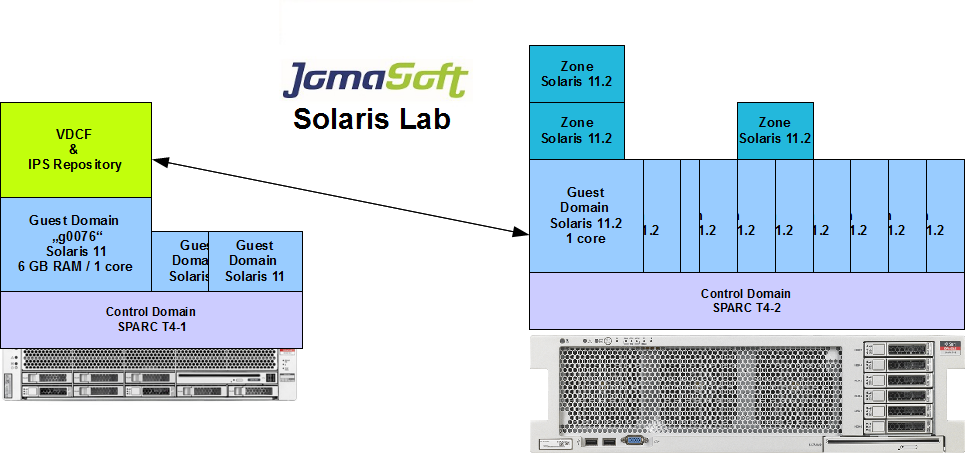

Livre Oracle Solaris 11.2 System Administration Handbook
Il y a peu de livres traitant de Solaris et aujourd'hui d'Oracle Solaris. De plus le système d'exploitation a énormément évolué depuis ces dernières années.
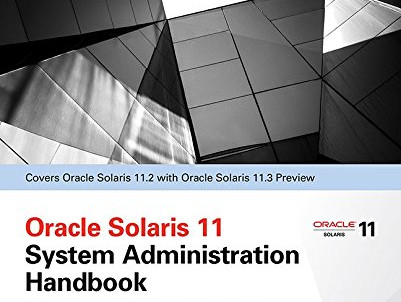

Déployer des agents Oracle Enterprise Manger 12c sur Solaris 11.x
Déployer des agents Enterprise Manger sur Solaris n'est pas une tache difficile, et est similaire au déploiement sur les environnements Linux avec juste quelques changements mineurs.
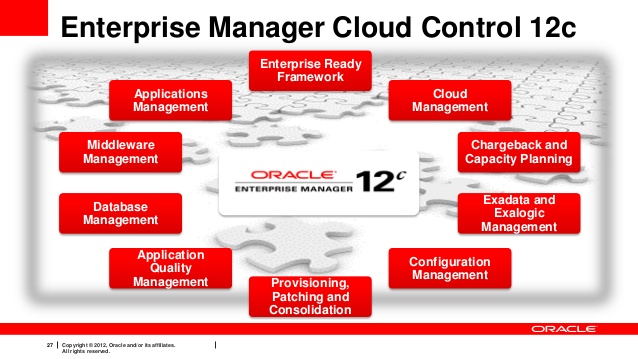

oracle Solaris 11.3 découvrez la vidéo de présentation
Avec l'arrivée de la nouvelle mouture d'Oracle Solaris, Oracle a décidé de vous présenter les nouveaux challenges auquel répond Oracle Solaris 11.3 orienté sur 3 valeurs : La sécurité, la vitesse et la simplicité.


Vue d’ensemble des différentes générations de Sparc
Savez-vous combien il y a de types de CPU SPARC actuellement sur le marché ? Pas un, pas deux, mais cinq. Le SPARC64-VII, le T3, le T4, T5, M5 et M10.


Benchmark entre Oracle et IBM en terme de coût global
Benchmark entre Oracle et IBM en terme de coût global
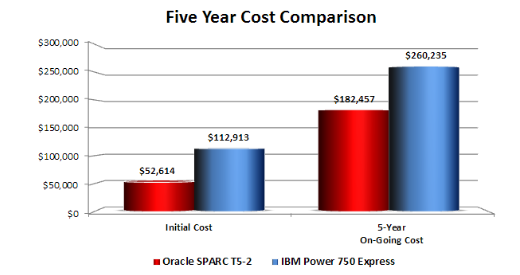

Vidéo de la TechDay 2013 sur Sparc et Solaris
Retrouver le compte rendu vidéo du TechDay Solaris/SPARC qui s'est déroulé le 15 mai à PARIS.


Oracle Solaris Sparc TechDay 2013 : Retour sur l’événement
Oracle-Solaris.fr était présent à cette événement d'envergure pour les technologies Oracle Solaris et Sparc. L'objectif premier était d'y faire des rencontres, entre administrateur et ingénieur système Solaris mais aussi d'y partager ces expériences.
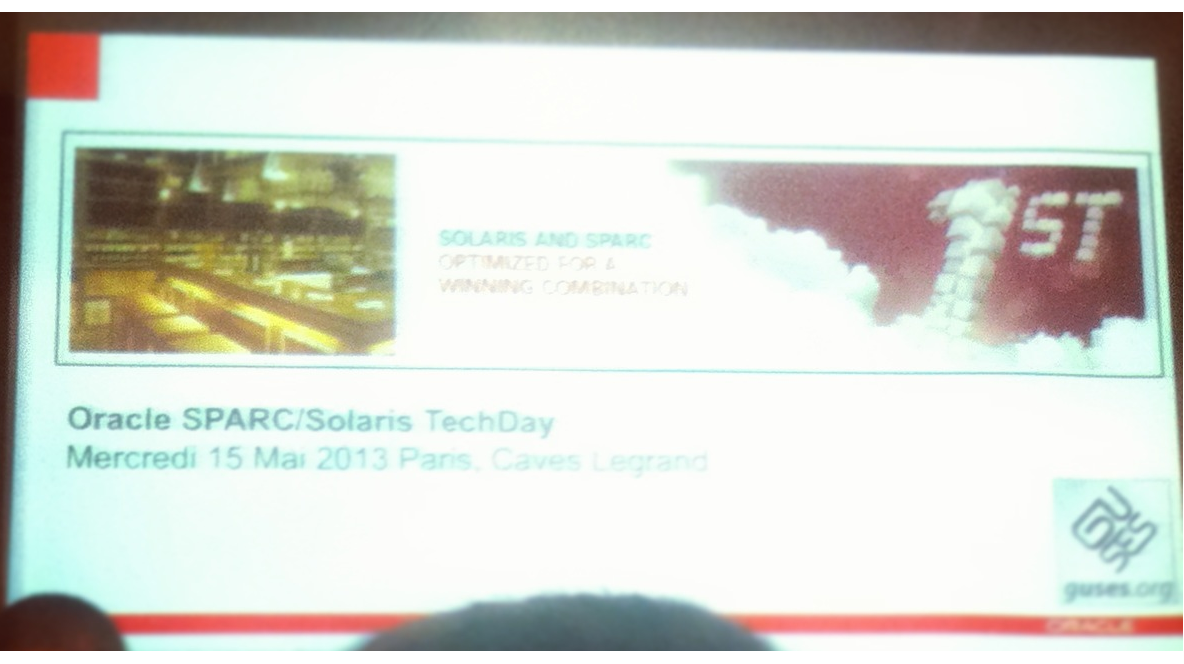

Avr 11
26
Oracle annonce son intention de transférer OpenOffice.org à la communauté Open Source
Oracle annonce son intention de transférer OpenOffice .org à la communauté Open Source et mets fin à la version commerciale d’OpenOffice. On se souvient que déjà la communauté d’OpenOffice s’était rebellé contre Oracle pour au final créer un fork d’OpenOffice appelé LibreOffice. Ce revirement stratégique d’Oracle pourrait bénéficier à la Document Fundation qui espèrerait bien récupérer le projet pour fusionner LibreOffice et OpenOffice.
Oracle semblait pourtant jouer la carte de l’open source mais à sa manière. Par exemple, on a eu le plug-in MS Office de compatibilité des formats open documents pour la suite office de Microsoft qui est devenu payant après le rachat de Sun Microsystem. Oracle Solaris aussi était gratuit…
Articles en relation:
Actualités by .
Description
cd est une des commandes les plus utilisés dans les environnements unix car elle est tout simplement indispensable : elle permet de naviguer dans l’arborescence du système de fichiers. Elle possède également quelques options et astuces de synthaxe pour se simplifier la vie !
Elle s’utilise en parallèle avec d’autres commandes comme pwd.
Exemple
root@solaris:~# cd /usr/share/ root@solaris:/usr/share# cd /export/home/ root@solaris:/export/home# cd - /usr/share root@solaris:/usr/share# cd root@solaris:~# pwd /root
Man solaris de la commande cd
User Commands cd(1) NAME cd, chdir, pushd, popd, dirs - change working directory SYNOPSIS /usr/bin/cd [directory] sh cd [argument] chdir [argument] csh cd [dir] chdir [dir] pushd [+n | dir] popd [+n] dirs [-l] ksh, ksh93 cd [-L] [-P] [arg] cd old new DESCRIPTION /usr/bin/cd The /usr/bin/cd utility changes the current directory in the context of the cd utility only. This is in contrast to the version built into the shell. /usr/bin/cd has no effect on the invoking process but can be used to determine whether or not a given directory can be set as the current directory. sh The Bourne shell built-in cd changes the current directory to argument. The shell parameter HOME is the default argu- ment. The shell parameter CDPATH defines the search path for the directory containing argument. Alternative directory names are separated by a colon (:). The default path is <null> (specifying the current directory). The current directory is specified by a null path name, which can appear immediately after the equal sign or between the colon delim- iters anywhere else in the path list. If argument begins with `/', `.', or `..', the search path is not used. Other- wise, each directory in the path is searched for argument. cd must have execute (search) permission in argument. Because a new process is created to execute each command, cd would be ineffective if it were written as a normal command; therefore, it is recognized by and is internal to the shell. (See pwd(1), sh(1), and chdir(2)). chdir is just another way to call cd. csh If dir is not specified, the C shell built-in cd uses the value of shell parameter HOME as the new working directory. If dir specifies a complete path starting with `/', `.', or `..', dir becomes the new working directory. If neither case applies, cd tries to find the designated directory relative to one of the paths specified by the CDPATH shell variable. CDPATH has the same syntax as, and similar semantics to, the PATH shell variable. cd must have execute (search) permis- sion in dir. Because a new process is created to execute each command, cd would be ineffective if it were written as a normal command; therefore, it is recognized by and is internal to the C-shell. (See pwd(1), sh(1), and chdir(2)). chdir changes the shell's working directory to directory dir. If no argument is given, change to the home directory of the user. If dir is a relative pathname not found in the current directory, check for it in those directories listed in the cdpath variable. If dir is the name of a shell vari- able whose value starts with a /, change to the directory named by that value. pushd pushes a directory onto the directory stack. With no arguments, exchange the top two elements. +n Rotate the n'th entry to the top of the stack and cd to it. 0 starting at the top. +n Discard the n'th entry in the stack. dirs prints the directory stack, most recent to the left; the first directory shown is the current directory. With the -l argument, produce an unabbreviated printout; use of the ~ notation is suppressed. ksh, ksh93 The Korn shell built-in cd command can be in either of two forms. In the first form it changes the current directory to arg. If arg is - the directory is changed to the previous directory. The shell variable HOME is the default arg. The environment variable PWD is set to the current directory. If the PWD is changed, the OLDPWD environment variable shall also be changed to the value of the old working directory, that is, the current working directory immediately prior to the call to change directory (cd). The shell variable CDPATH defines the search path for the directory containing arg. Alternative directory names are separated by a colon (:). The default path is null (specifying the current directory). The current directory is specified by a null path name, which can appear immediately after the equal sign or between the colon delimiters anywhere else in the path list. If arg begins with a `/', `.', or `..', then the search path is not used. Otherwise, each directory in the path is searched for arg. If unsuccessful, cd attempts to change directories to the pathname formed by the concatenation of the value of PWD, a slash character, and arg. -L Handles the operation dot-dot (..) logically. Symbolic link components are not resolved before dot-dot com- ponents are processed. -P Handles the operand dot-dot physically. Symbolic link components are resolved before dot-dot components are processed. If both -L and -P options are specified, the last option to be invoked is used and the other is ignored. If neither -L nor -P is specified, the operand is handled dot-dot logi- cally. The second form of cd substitutes the string new for the string old in the current directory name, PWD and tries to change to this new directory. The cd command cannot be executed by rksh. Because a new process is created to execute each command, cd would be ineffective if it were written as a normal command; there- fore, it is recognized by and is internal to the Korn shell. (See pwd(1), sh(1), and chdir(2)). OPERANDS The following operands are supported: directory An absolute or relative pathname of the direc- tory that becomes the new working directory. The interpretation of a relative pathname by cd depends on the CDPATH environment variable. OUTPUT If a non-empty directory name from CDPATH is used, an abso- lute pathname of the new working directory is written to the standard output as follows: "%s\n", <new directory> Otherwise, there is no output. ENVIRONMENT VARIABLES See environ(5) for descriptions of the following environment variables that affect the execution of cd: LANG, LC_ALL, LC_CTYPE, LC_MESSAGES, and NLSPATH. CDPATH A colon-separated list of pathnames that refer to directories. If the directory operand does not begin with a slash ( / ) character, and the first component is not dot or dot-dot, cd searches for directory relative to each directory named in the CDPATH variable, in the order listed. The new working directory sets to the first matching directory found. An empty string in place of a directory pathname represents the current direc- tory. If CDPATH is not set, it is treated as if it were an empty string. HOME The name of the home directory, used when no directory operand is specified. SunOS 5.11 Last change: 8 Apr 2008 4 User Commands cd(1) OLDPWD A pathname of the previous working directory, used by cd-. PWD A pathname of the current working directory, set by cd after it has changed to that directory. EXIT STATUS The following exit values are returned by cd: 0 The directory was successfully changed. >0 An error occurred. ATTRIBUTES See attributes(5) for descriptions of the following attri- butes: csh, ksh, sh ____________________________________________________________ | ATTRIBUTE TYPE | ATTRIBUTE VALUE | |_____________________________|_____________________________| | Availability | SUNWcs | |_____________________________|_____________________________| | Interface Stability | Committed | |_____________________________|_____________________________| | Standard | See standards(5). | |_____________________________|_____________________________| ksh93 ____________________________________________________________ | ATTRIBUTE TYPE | ATTRIBUTE VALUE | |_____________________________|_____________________________| | Availability | SUNWcsu | |_____________________________|_____________________________| | Interface Stability | Uncommitted | |_____________________________|_____________________________| SEE ALSO csh(1), ksh(1), ksh93(1), pwd(1), sh(1), chdir(2), attri- butes(5), environ(5), standards(5) SunOS 5.11 Last change: 8 Apr 2008 5
Articles en relation:
Description
La commande pwd est très utilisé sur les systèmes Unix car elle a un fonction indispensable : connaître son emplacement dans l’arborescence. Dans un contexte d’utilisation elle permet de s’assurer que l’on ait bien situé là où on le voudrait ou tout simplement éviter de se « perdre ». Elle n’a pas d’options particulières.
Exemple
axel@solaris:/var/log$ pwd /var/log
Man solaris de la commande pwd
User Commands PWD(1) NAME pwd - print name of current/working directory SYNOPSIS pwd [OPTION]... DESCRIPTION Print the full filename of the current working directory. -L, --logical use PWD from environment, even if it contains symlinks -P, --physical avoid all symlinks --help display this help and exit --version output version information and exit NOTE: your shell may have its own version of pwd, which usu- ally supersedes the version described here. Please refer to your shell's documentation for details about the options it supports. AUTHOR Written by Jim Meyering. REPORTING BUGS Report pwd bugs to bug-coreutils@gnu.org GNU coreutils home page: <http://www.gnu.org/software/coreutils/> General help using GNU software: <http://www.gnu.org/gethelp/> Report pwd translation bugs to <http://translationproject.org/team/> COPYRIGHT Copyright O 2010 Free Software Foundation, Inc. License GPLv3+: GNU GPL version 3 or later <http://gnu.org/licenses/gpl.html>. This is free software: you are free to change and redistri- bute it. There is NO WARRANTY, to the extent permitted by law. SEE ALSO getcwd(3) The full documentation for pwd is maintained as a Texinfo manual. If the info and pwd programs are properly installed at your site, the command GNU coreutils 8.5 Last change: April 2010 1 User Commands PWD(1) info coreutils pwd invocation should give you access to the complete manual. ATTRIBUTES See attributes(5) for descriptions of the following attri- butes: ___________________________________________ | ATTRIBUTE TYPE | ATTRIBUTE VALUE | |____________________|_____________________| | Availability | file/gnu-coreutils | |____________________|_____________________| | Interface Stability| Uncommitted | |____________________|_____________________| NOTES Source for GNU coreutils is available on http://opensolaris.org. GNU coreutils 8.5 Last change: April 2010 2
Articles en relation:
ASR (Auto Service Request) est un service initialement créé par Sun Microsystem pour faciliter l’ouverture d’incident matériel automatiquement. Repris par Oracle sous l’appellation Oracle Auto Service Request, la mouture vient de passer en version 3.1. En plus d’amélioration au niveau du logiciel le fonctionnement à lui aussi subit une mise à jour.
Les nouveautés
La documentation a été migré sur oracle.com à l’adresse oracle.com/asr
Au niveau de ASR 3.1 :
- ASR devient installable sur tout les Solaris (toutes versions confondues) et sur Oracle Enterprise Linux
- ASR peut maintenant est installé sur les solaris « non-physique » comme les Solaris virtualisé sur Ldoms, Local zone, Virtualbox or vmware VM, les domaines M-séries et les serveurs Blade
- Les requêtes ASR sont maintenant intégrés dans My Oracle Support
Lien pour télécharger ASR : download/asr
Voir le tutoriel d’oracle-solaris.fr : tutoriel oracle ASR
Pour finir une vidéo créé par Oracle qui explique en images le nouveau fonctionnement d’ASR.
Articles en relation:
Les équipements Sun Rays étaient déjà compatible avec XenApp mais c’est maintenant officialisé par Citrix qui a ajouté les produits dans sa liste de produits Citrix Ready. La qualité des équipements Sun Rays pourra être un vrai plus pour les utilisateurs de la solution concurrente à oracle VDI !
